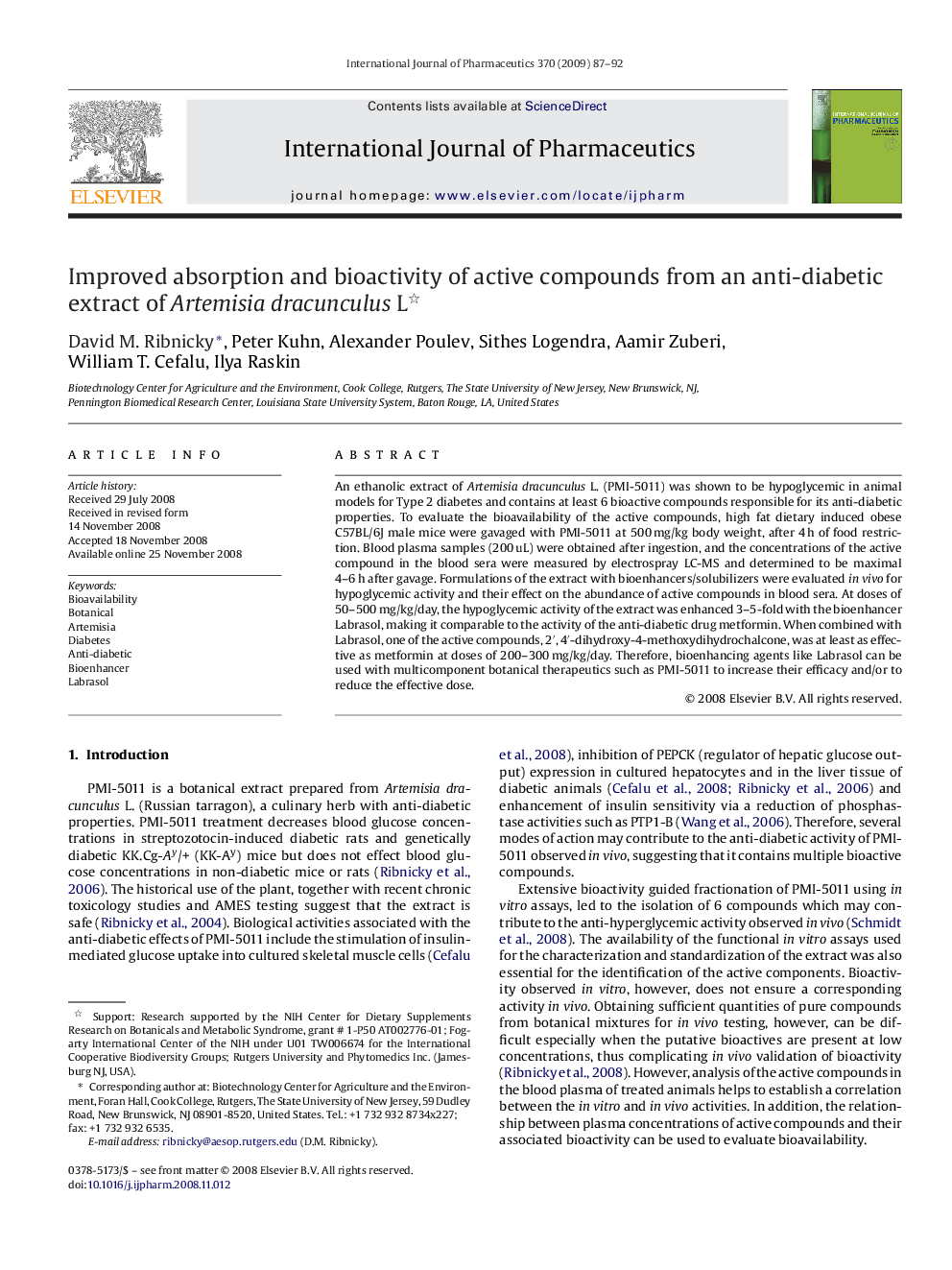| Article ID | Journal | Published Year | Pages | File Type |
|---|---|---|---|---|
| 2504911 | International Journal of Pharmaceutics | 2009 | 6 Pages |
An ethanolic extract of Artemisia dracunculus L. (PMI-5011) was shown to be hypoglycemic in animal models for Type 2 diabetes and contains at least 6 bioactive compounds responsible for its anti-diabetic properties. To evaluate the bioavailability of the active compounds, high fat dietary induced obese C57BL/6J male mice were gavaged with PMI-5011 at 500 mg/kg body weight, after 4 h of food restriction. Blood plasma samples (200 uL) were obtained after ingestion, and the concentrations of the active compound in the blood sera were measured by electrospray LC-MS and determined to be maximal 4–6 h after gavage. Formulations of the extract with bioenhancers/solubilizers were evaluated in vivo for hypoglycemic activity and their effect on the abundance of active compounds in blood sera. At doses of 50–500 mg/kg/day, the hypoglycemic activity of the extract was enhanced 3–5-fold with the bioenhancer Labrasol, making it comparable to the activity of the anti-diabetic drug metformin. When combined with Labrasol, one of the active compounds, 2′, 4′-dihydroxy-4-methoxydihydrochalcone, was at least as effective as metformin at doses of 200–300 mg/kg/day. Therefore, bioenhancing agents like Labrasol can be used with multicomponent botanical therapeutics such as PMI-5011 to increase their efficacy and/or to reduce the effective dose.
